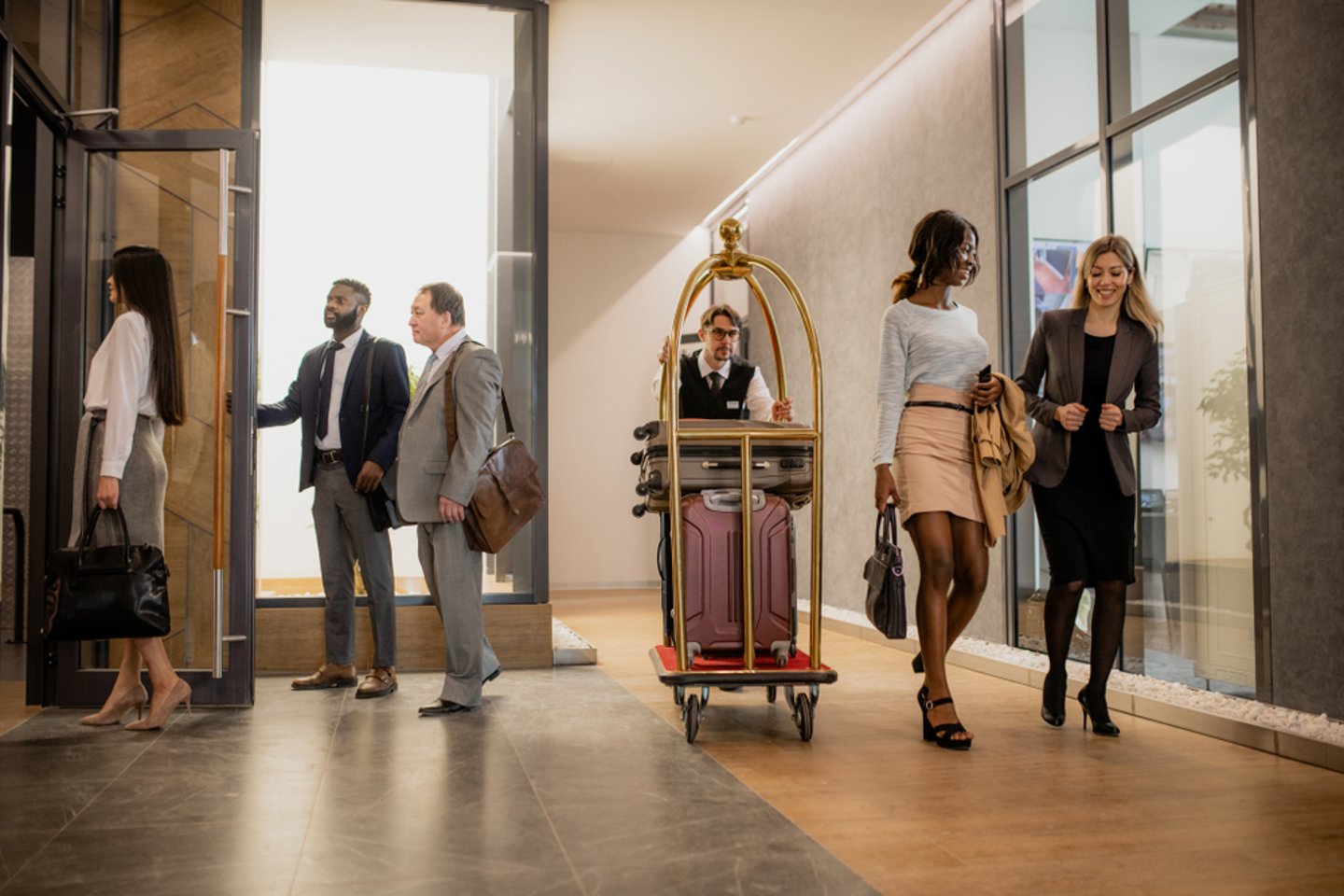Re-evaluating the Concept of the Traditional Hotel PMS
It's hard to believe that it has been 50 years since the first property management system (PMS) appeared in a hotel. Even though the PMS has evolved significantly over the years, as guest behavior continues to change, hotels must change with it.
When we think about the traditional PMS, we think of managing tasks like guest check-in and checkout, room inventory and pricing, housekeeping, and billing. Property management systems were developed to help hotels run more efficiently by automating manual and administrative tasks mostly centered around the front desk.
Today, while these tasks are still a necessary part of a hotel's PMS, there are other aspects of the guest experience that now require a PMS to be more than just a front desk task manager.
Re-evaluating the Role of the PMS
One of the main reasons the PMS has evolved is that the role of the hotel manager has changed drastically since the hotel PMS was first born, and today's guests demand more. Additionally, with staff shortages and the need to streamline operations, hotel properties must have a solution in place that far outreaches the typical day-to-day activities of the front desk. A PMS must be easy to use, require simple training, and have the ability to manage or communicate with all the other systems in a hotel.
In the past, guests would contact a property directly to make a reservation, and its existing PMS was more than able to fill the hotel's needs. With the shift to online travel planning and booking, however, several systems have come into play and must be managed by the hotel's PMS. For example, a booking engine and payment gateway are needed to enable direct bookings, and to optimize daily rates and distribution, the hotel requires a revenue management system and channel manager.
Guest expectation requires that hotels have a full picture of their journey, from property search to booking, and check-in to checkout. Today's guest expects an instant, seamless experience, and in many cases, a contactless experience. And to promote return bookings, favorable reviews, and loyalty, the property has to stay connected with the guest even after the last day of their stay. That’s where today’s PMS comes in.
Some would say that the modern PMS has had to evolve as the smartphone has – from a few simple tasks to much more detailed functions. Today, smartphones operate as a technology platform, providing a foundation of hardware and software upon which other applications and technologies are built, and this is exactly how the PMS is evolving.
Is my Legacy PMS Still Effective?
While the core requirements of a hotel PMS still exist, today's guest behavior has pushed hotels to expand their abilities to serve them, and that means making sure their PMS is able to function far beyond the front desk. Legacy or outdated property management systems just can't keep up with today's guests, and they may be keeping them from returning.
The modern PMS has the ability to manage guest profiles and communicate with multiple systems. In many cases, there can be challenges with legacy PMS platforms and third-party integrations. They can cost too much for the hotel, take too long to implement, and ultimately prevent the guest from a seamless check-in as the hotel staff has to manually enter details that the guest has already provided multiple times since booking.
The Benefits of Platformization
Like smartphones, we’re now seeing the platformization of the PMS. Within PMS platforms, hoteliers have the tools they need to maximize revenue, increase operational efficiency, and deliver memorable guest experiences. There is only one sign-in, one system to learn, and one dashboard used by all departments. Because data is consolidated into a single guest profile, there are none of the issues associated with manual inputs and duplication of tasks.
These systems are cloud-native and are built for delivery over the internet rather than the traditional on-premise model. The PMS platform acts as software-as-a-service (SaaS), with most hardware, software, and data housed in the cloud rather than on property. This means lower costs, more frequent and efficient upgrades, minimal downtime, and easy customization to meet the unique needs of each property.
With the platformization of the PMS, the platform provider purpose-builds a suite of core applications in-house and fully integrates them with the PMS, including a booking engine, channel manager, revenue management system, payments solution, and other digital marketing and guest experience tools. Today hotel guests can check themselves in online, enter the room with their mobile phone, text guest services for extra towels, and settle their account using contactless payment.
What's Next?
While guest behavior continues to evolve, so will the hotel PMS. Hotels will have to make sure they appeal to a broad range of guests and their preferences. The property's PMS will have to be easy to learn, easy to use, and must be intuitive to maximize staff efficiency and system accuracy. Hotel management must have the ability to see the business as a whole and review guest data at the click of a button. And hoteliers will be focused on improvement – improvement of the property itself, improvement of guest service, improvement of operational efficiency, and most of all, improvement in guest satisfaction.
A PMS whose primary function is to manage reservations and check guests in no longer meets the needs of the modern lodging business, especially if the property becomes reliant on a number of other systems to fill in the gaps for marketing, distribution, revenue management, payments, and analytics.
Today’s hoteliers no longer need a property management system, they need a hospitality management system — a centralized system of record in which a property can run operations and smartly set pricing, distribute and market inventory, analyze its data, and ultimately ensure a seamless and modern experience for its guests. Cloud-based, integrated platforms have the ability to take hoteliers into the future and solve some of the biggest technology challenges they face every day.

